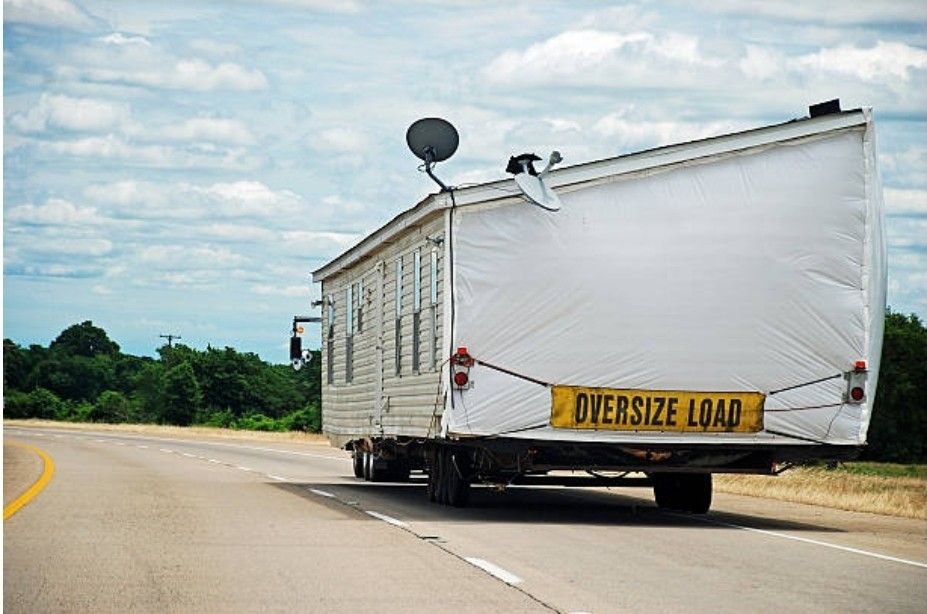Thank you for your feedback!
We will contact you shortly
Free consultation
Enter your phone number and we will call you back for a consultation on any moving and storage services
The Legal Aspects of Moving: Contracts, Liabilities, and Insurance
Moving is an exciting yet complex process that involves several legal considerations, from contracts and liabilities to insurance coverage. Whether you are an individual relocating to a new home or a business planning an office move

Legal Considerations in Moving:
When embarking on a move, it's imperative to be aware of the legal considerations that come into play. These considerations encompass various aspects of the relocation process, including contracts, liability, and insurance.
Moving Contracts and Agreements:
One of the first legal steps in the moving process is the establishment of contracts and agreements. These documents outline the terms and conditions of your move, ensuring both parties involved are on the same page. A well-drafted moving contract should include:
Scope of Services: Define what services the moving company will provide, such as packing, loading, transporting, and unloading.
Pricing and Payment Terms: Clearly specify the cost of the move and the payment schedule, including any additional charges.
Liability and Insurance: Outline the extent of the moving company's liability in case of damage or loss, as well as the insurance coverage provided.
Cancellation and Rescheduling Policies: Include provisions for cancellations, rescheduling, and any associated fees.
By having a comprehensive contract in place, you can protect your interests and ensure a smooth move.
Liability in Relocation:
Liability in the context of moving refers to the responsibility for any damage or loss that may occur during the relocation process. Understanding the limits of liability is crucial:
Released Value Protection: This is the basic coverage offered by most moving companies. It typically covers a portion of the item's value based on weight. However, it is essential to note that this coverage is minimal and may not fully protect your belongings.
Full-Value Protection: Some moving companies offer full-value protection, which provides coverage for the replacement or repair of damaged or lost items at their full market value. It often comes at an additional cost but offers more extensive protection.
Moving Insurance Coverage:
In addition to the liability provided by the moving company, it's advisable to consider additional moving insurance coverage. This extra layer of protection can safeguard your possessions in case of unforeseen events such as accidents, theft, or natural disasters.
Types of moving insurance coverage include:
Declared Value Coverage: This allows you to declare a value for your items, and the moving company will base its liability on this declared value.
Third-Party Insurance: You can opt for insurance coverage from a third-party provider, offering more flexibility and potentially higher coverage limits.
Homeowner's Insurance: Check if your homeowner's insurance policy covers your belongings during a move. If not, you may need to purchase additional coverage.
Legal Protections for Movers:
Various laws and regulations are in place to protect both consumers and moving companies . Understanding these legal protections is essential to ensure a smooth and fair moving experience. Some of the key legal protections include:
Federal Motor Carrier Safety Administration (FMCSA): This federal agency regulates interstate movers and establishes rules for moving companies, including licensing and insurance requirements.
State Regulations: Each state may have its own regulations governing intrastate moves. Be sure to research and comply with these regulations if you are moving within your state.
Conclusion:
Navigating the legal aspects of moving, including contracts, liabilities, and insurance, is vital for a successful relocation. By understanding your rights and responsibilities, you can ensure that your move is not only smooth but also legally protected. Remember to carefully review contracts, consider additional insurance coverage, and be aware of the legal safeguards in place. With this knowledge, you can embark on your moving journey with confidence and peace of mind.
For more information and expert guidance on the legal considerations in moving, reach out to us. We're here to help you make your move a legally sound and hassle-free experience."
You can read more useful tips and articles on our blog.

Artur Shakhnazarov
PR manager
I love my work doing PR and SEO for Star Van Lines. PR roles involve constantly brainstorming new angles and approaches to generate positive coverage. I am always exercising my creativity.
FAQ
Questions? Look here
Can’t find an answer? Call us
(855) 822-2722 or email
Moving contracts outline the responsibilities of both you and the moving company. Understanding the terms helps prevent misunderstandings, ensures clear expectations, and protects you in case of delays, damages, or disputes.
Liabilities can include damage to your belongings, injuries during the move, or issues caused by third-party contractors. Most reputable moving companies, like Star Van Lines, clearly define liability in their contracts and provide options for added protection.
Yes, moving insurance offers extra protection for your belongings. Basic coverage may be included, but you can often purchase full-value protection or third-party insurance for valuable or fragile items. Insurance ensures peace of mind throughout the move.
Read and understand your contract, ask questions about liability and insurance, and document your belongings before the move. Keeping receipts, photos, and an inventory list can help resolve any disputes efficiently.









